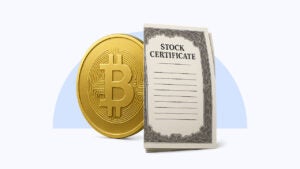Sell your house fast in Arizona

If you’re thinking about how to sell your house in Arizona fast, welcome to the club. Selling here isn’t as easy now as it was in 2022: According to data from Arizona Realtors, inventory is rising and median sale prices are starting to decline. It makes sense that many sellers may be in a rush to list before conditions worsen and the seller’s market tilts toward buyers.
So how can you get your home in the Grand Canyon State sold — quickly, and for the best price possible? Read on for a complete rundown of how to sell a house in Arizona.
How fast can you typically sell your house in Arizona?
According to Redfin data, Arizona homes stayed on the market for a median of 51 days in April 2023. That’s just over double the amount of time from April of last year, when the time frame was just 25 days. However, it’s a very significant improvement from January and February, both of which saw days-on-market figures in the low 70s, which reflects that homebuying season is starting to ramp up. If speed is a priority for your sale, aim to list in the spring or early summer.
In addition, keep in mind that the length of time homes sit on the market varies depending on what part of Arizona you’re in. For example, Redfin data shows that April’s median days on market in Phoenix was 46, while in Flagstaff, it was a mere 10.
Need to sell even faster?
If you don’t have any time to waste, consider these options to sell your house in Arizona faster than the usual traditional sale.
- iBuyers: With a company like Opendoor or Offerpad, both of which operate in Arizona, you might be able to receive a cash offer on your home in less than a day, with a super-speedy closing timeline. However, you will likely get a lower price from an iBuyer than you would on the open market.
- Cash buyers: Look into companies that buy Arizona houses for cash, too. These are typically real estate investment companies that are looking for bargain properties to fix-and-flip, so don’t expect a top-dollar offer. You can expect the same speed as an iBuyer, though.
- Selling as-is: You might also opt to list your place as-is, which is a way to tell anyone on the buying side that you aren’t willing to spend time on the usual, lengthy back-and-forth negotiations
Selling your home in Arizona
Before you list your home for sale, ask yourself these questions:
Is it worth upgrading your home before you sell?
While it can be tempting to invest more money in your home before listing it, a dollar in doesn’t necessarily mean a dollar out. In fact, most expensive projects, like remodeling your entire kitchen, will not recoup their costs in the sale. Instead of undertaking a long, expensive project, think about quick improvements that can boost your home’s value.
What should you repair before selling your home?
Think like a buyer: Are there any existing issues that would make you think twice about buying the home? For example, you probably wouldn’t be pleased to learn that the HVAC system was on its last leg — especially in the desert heat. As you think about what to fix and what not to fix, a professional real estate agent can be an invaluable resource.
Should you have your home staged?
Staging your home — hiring a pro to make the house as welcoming and well-situated as possible — is a great short-term solution. How much you’ll pay for home staging depends on whether you are looking for minor help, like decluttering and repositioning the main living areas, or major assistance, like outfitting the home with rental furniture. Again, your real estate agent is the right person to ask about whether staging will make a meaningful difference in your final sale price.
What price should you set?
If you’re wondering what your house is worth, the simple answer is, it’s worth however much someone is willing to pay for it. Your agent will help you develop a pricing strategy based on the comps in the area. For example, if you’re selling a four-bedroom, four-bathroom home, look at what other four-bed, four-bath properties nearby have recently commanded. Per Redfin, 17 percent of homes sold in Arizona in April went for more than their list price. Work with your agent to figure out how to add your property to that data set.
What do you need to disclose?
The most important document you will need to complete when selling your Arizona home is a seven-page residential seller disclosure advisory. This covers a wide range of issues that could impact the value of the property, from swimming pool problems to soil remediation. Be truthful, as any failure to disclose has the potential to create legal troubles down the road. In addition, if your home is part of a homeowners association, be prepared to turn over documents about the financial health of the association. Getting those can take some time, so it’s wise to request them as soon as you decide to list the home.
Closing day
Before you can pocket your proceeds, there’s one final step to check off your list: closing. And that comes, unfortunately, with closing costs.
The biggest cost you should budget for as a seller is paying the real estate agents involved in the transaction. The buyer’s agent and your agent will typically earn 2.5 to 3 percent of the sale price each. The median sale price for a home in April was $423,600, so on a median-priced sale, you would likely hand over up to $25,416 in Realtor fees.
Costs of selling a home in Arizona
Here are some other common closing costs for sellers:
- Title insurance: The seller usually covers the cost of title insurance in Arizona, and the amount depends on the purchase price and title company.
- Escrow fees: You’ll likely split an escrow fee with the buyer 50/50, and the cost also depends on the sale price of the home.
- Transfer taxes: Put a zero next to your calculations for real estate transfer taxes. Arizona is one of several states that do not charge this common tax.
- Seller concessions: You may, however, have to pay some concessions to the buyer, especially if their home inspection uncovers a major issue. This is standard practice if the home will require costly repairs.
- Attorney fees: While you’re not legally required to hire a lawyer to sell a house in Arizona, you should strongly consider it. The fee, which will range based on the attorney and time spent on your transaction, is well worth the peace of mind of knowing that you are protected in the deal.
Next steps
Ready to get started? If you’ve decided on a traditional sale, set up interviews with a few different local real estate agents — preferably recommended by friends or family members who have been happy with their experiences. Interview them about how they would approach your home sale, and try to find someone you click with, who you will trust to guide you on your selling journey.
If you’re opting to sell to an iBuyer or homebuying company, do your research and be sure you understand exactly how the transaction will work, what fees you might be charged and how long it will take. Check online reviews and your local Better Business Bureau as well, and read the contract very carefully before you sign.
FAQs
-
According to Redfin data, Arizona homes took a median of 51 days to sell in April 2023. Some markets may be longer, and some may be shorter — in Flagstaff, for example, that number was just 10. If you are in a rush, you can sell your home to an iBuyer or cash-homebuying company much faster: You may get an offer within 24 hours and be able to close in a week or two.
-
You are not legally required to hire a real estate attorney when selling your home in Arizona. However, real estate contracts are very complex and there’s a lot of money involved, so it’s smart to hire a legal expert to make sure you are protected.
-
You won’t have to pay any real estate transfer taxes when you sell your house in Arizona — a difference from most other states in the U.S. However, you will likely need to pay your property taxes for the portion of the year you have occupied the home. And depending on how much profit you make on the sale, you may need to pay capital gains tax as well.
Why we ask for feedback Your feedback helps us improve our content and services. It takes less than a minute to complete.
Your responses are anonymous and will only be used for improving our website.
You may also like

What is the maximum Social Security benefit?

Are business loans harder to get than personal loans?

7 of the weirdest, wildest, oddball ETFs



